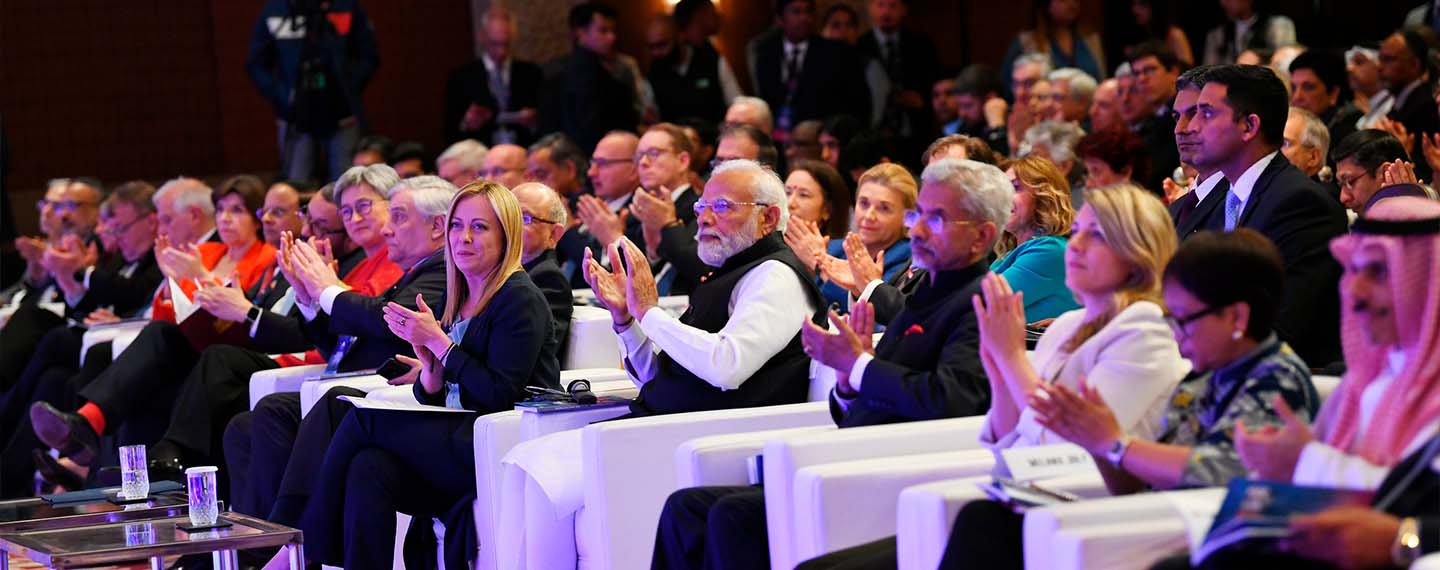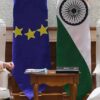This is India’s new golden age, while the G20 is in tatters. Such could be a brief summary of this year’s Raisina Dialogue. It was impressive to observe the hosts’ self-confidence. Samir Saran, President of the Observer Research Foundation (ORF), has achieved what a few years ago was almost unimaginable: to make the Raisina Dialogue one of the most important forums in geoeconomics and geopolitics. So much so that last week the whole world was heedful to what was being discussed in New Delhi.
The occasion merited the attention. This year’s Raisina coincided with the G20 meeting of Foreign Ministers and therefore the programme line-up was packed with big names. The first day, over dinner, there was the opportunity to hear the views of the Ministers of Foreign Affairs of the UK, France, Indonesia and Denmark, in addition to those of Bill Gates. The next day, in separate sessions, there were the four Foreign Ministers of the Quad, including Antony Blinken, then Josep Borrell, with the Foreign Ministers of Canada, Mexico and Bangladesh, and, to spice it all up, at midday, it was the turn of Sergey Lavrov.
The rifts in global politics could not be starker. All Westerns leaders, including the Italian Prime Minister Georgia Meloni, who inaugurated the Raisina, condemned the Russian invasion of Ukraine and were firm in their demand that Russia ‘needs to get out of Ukraine. Full Stop’ –as expressed by the Canadian Minister, Mélanie Joly–. Meanwhile, India moved not an inch from its position of neutrality. Its Foreign Minister, Subrahmanyam Jaishankar, was obviously angry that, yet again, the war had highjacked the conversation. The signing of a joint communique was impossible and, thus, undermined the sustainable development agenda that India had so carefully crafted for its G20 presidency.
This was a déjà vu from last year’s Bali meeting under the Indonesian G20 presidency, but with a couple of differences. One was that this time the Indian hosts publicly declared that there were two countries who vetoed the final draft of the communique, pointing the finger directly at Russia and China (a major diplomatic move, according to Joly); and the second was that on this occasion Lavrov came, spoke, and listened, while in Bali he only spoke and left. Small progress, according to Borrell, although he was also disappointed by the meeting. Foreign relations are now marked by two structural factors, he lamented: US-China rivalry and the move from multilateralism to multipolarity, with no consensus in sight. A grim outlook indeed.
Not only is the UN paralysed right now –as observed by the Mexican Minister, Marcelo Causabón–, but the fear is that inaction will spread to the G20. For India, and most countries in the Global South, this is a problem because what India needs is geopolitical stability to continue growing. Samir Saran summed up the general feeling of despair by saying that ‘yet again, Europe is in flames’. This is the reason why many Indian participants kept asking their European counterparts for a credible peace plan. ‘If the Chinese plan is a non-starter, what is your plan?’, asked an Indian interlocutor over dinner. Obviously, the response from the Europeans, many visibly angry, especially the Eastern Europeans, was that Russia needed to halt its invasion. The Indians saw this as no solution, drawing some spice into the conversation.
It has almost become a cliché to say that the war in Ukraine has united the West but also made it realise that it is increasingly alone vis-à-vis the rest.
This was visible in New Delhi. The West’s double standards in foreign affairs were heavily criticised. Incidentally, when the bullish Lavrov denounced passed US interventions in Serbia, Afghanistan, Iraq and Syria he earned a big round of applause from the Indian public. Parallels with Iraq were drawn by many Indian interlocutors, pointing out that no one back then asked to impose sanctions on the US (more Indian spice!). Palestine was also brought up by participants from Indonesia and the Arab world.
In general, the views on the war in this part of the world are shaped by anti-Americanism cynicism and pragmatism. It is not that people are neutral in regard to the atrocities committed by the Russian army in Ukraine –they condemn them–, but they do believe that like the US, Russia, as a great power, is acting regrettably in many ways –flouting international law–, but since it is still a powerful neighbour, it is better to get along with it. History matters a lot. During the Cold War the US sided with Pakistan and India received the support of the Soviet Union. Even today, Russia provides India with military equipment and it is a fundamental source of cheap energy. Thus, India will not publicly criticise Russia, with which it has a special privileged strategic partnership.
The abstention of Bangladesh –India’s small eastern neighbour but with a population of 200 million people– in the last UN votes condemning the Russian invasion follows the same pattern. Many Bangladeshi participants used the opportunity to remember how the US supported Pakistan during their independence war in 1971, which eventually led to a genocide, and denounced that the White House has never apologised.
Since Jawaharlal Nehru, India has always been keen to be neutral and non-aligned, much to the dismay of the US. This is likely to continue. Yes, China is India’s strategic rival, and this was noticeable in New Delhi last week. The Chinese participants were absent because they could not get their visas in time (no Indian spices for them). In this, Raisina again felt that it was at the crossroads of multiple geopolitical tensions. But this does not mean that India will stop cooperating with China. Apart from the Shanghai Cooperation Organisation and the BRICS, where leaders meet regularly, there is also the RIC: less known, but –according to Lavrov– a trilateral setting that is very active in bringing together officials and think tankers from the three countries on a regular basis.
Greater cooperation amongst the RIC is precisely what the West wants to avoid, and this is why Modi has been invited to join the G7 meetings. This, in turn, explains the self-confidence of many Indian officials, academics and think tankers at Raisina. They feel their country can be the kingmaker between the West and the East, and they are enjoying their moment. Indeed, the UK and the EU are very keen to sign a free-trade agreement with India. But it will not be easy. India has joined the US-sponsored Indo-Pacific Economic Framework but it has dropped out from the trade pillar.
In general, the West wants India to grow and become a counterweight to China.
And it is true that India has indeed improved the living standards of its population over the past decade. But progress will take time. India’s infrastructure is still way behind China’s, income inequality remains high and the caste system persists. While it is a thriving democracy, as the recent censorship of the documentary of the BBC on Modi indicates media freedom is seriously curtailed. Reporters without Borders ranks India 150th worldwide for press freedom in 2022. Again, some (spicy) food for thought here for the West.



